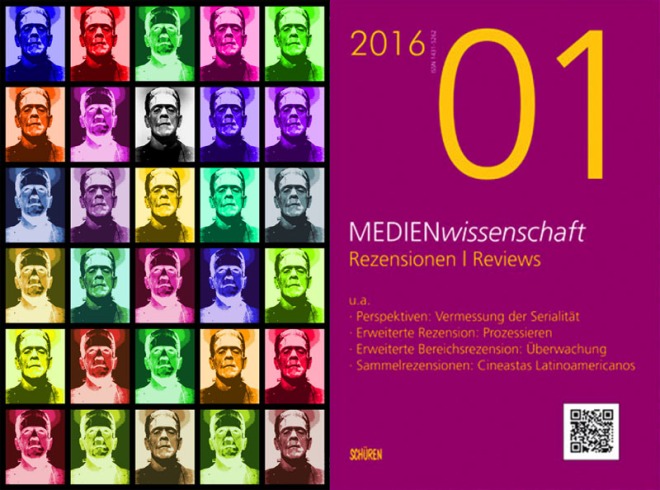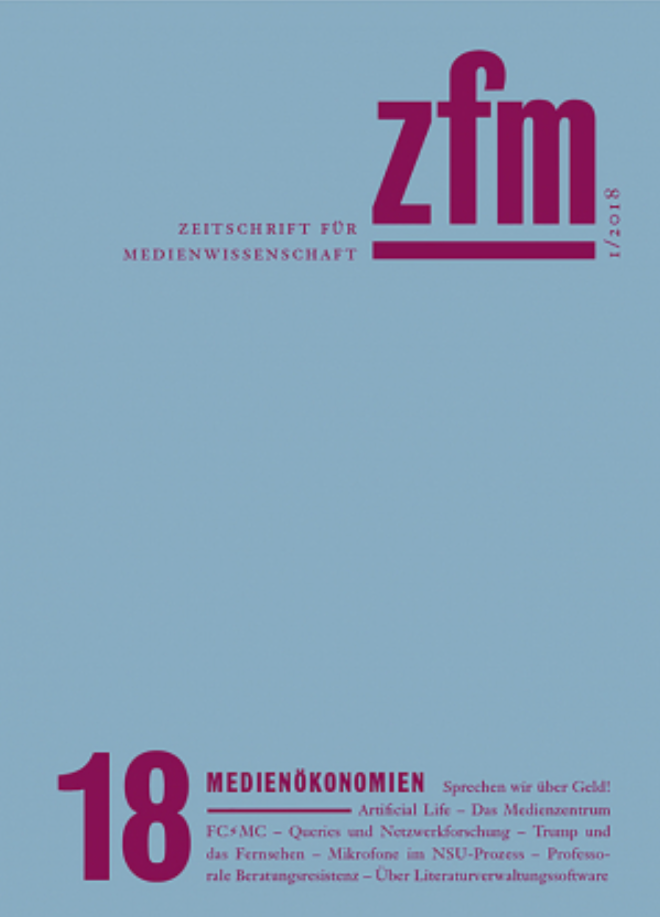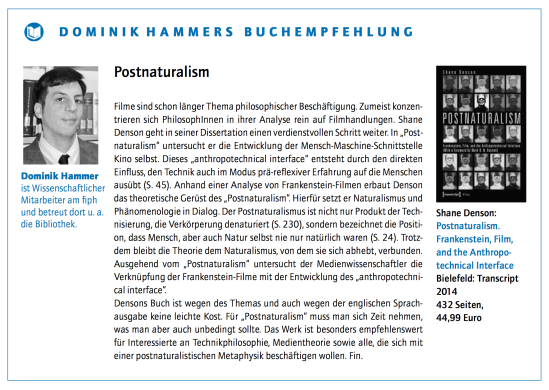
The latest issue of MEDIENwissenschaft: Rezensionen/Reviews includes a nice review of my book Postnaturalism: Frankenstein, Film, and the Anthropotechnical Interface.
For those of you who read German, you can find the entire text of the review, by Anya Heise-von der Lippe (Tübingen/Berlin), here. For everyone else, here is a (rough) translation of the reviewer’s summary statement:
“Postnaturalism offers a philosophical approach and an engagement with fundamental ontological and phenomenological questions of human and nonhuman materiality, which is indispensable especially for a post-postmodernity characterized by resource scarcity, climate change, and species extinctions, as well as the threat of a return to essentialist positions in politics and popular culture. Adapting a phrase from Bruno Latour, Denson counters the latter with a postnatural position: “We have never been natural” (24). Furthermore, Denson’s detailed examination — at the level of content, reception, and production — of Frankenstein adaptations is an asset for the analytical and production-aesthetic [produktionsästhetische] investigation of a central text (or modern myth) and its many adaptations in a wide range of text-critical disciplines: from media studies to literary to cultural studies.”
(Again, the translation is rough. Tweaks are more than welcome! Especially if you have suggestions for produktionsästhetisch or for making that first sentence more readable, drop me a line in the comments below…)
Finally, make sure you check out the entire issue of MEDIENwissenschaft, which is chock full of great stuff. Of particular interest to readers of this blog, among other things: the “Perspectives” section contains a longer piece on seriality and television series’ interrelations by Tanja Weber and Christian Junklewitz.
Check out the full contents of the issue here.






